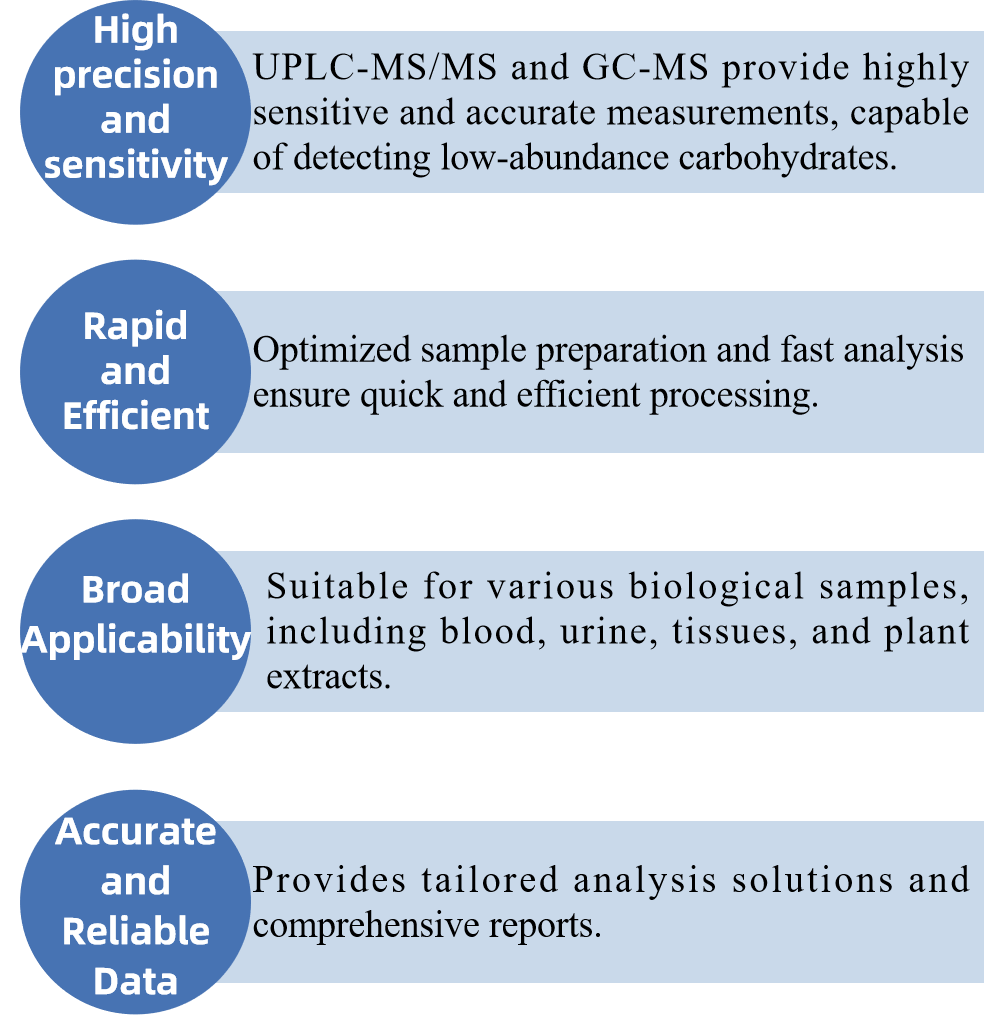Carbohydrates
Carbohydrates are essential organic compounds widely present in biological systems, involved in energy storage, structural construction, and signal transduction. They serve as primary energy sources for life activities and play critical roles in cell recognition, immune response, and pathogen infection. Carbohydrates include different types such as monosaccharides, oligosaccharides, and polysaccharides, exhibiting high structural diversity and functional complexity. For instance, glucose is the main energy source for cellular metabolism, cellulose is the primary component of plant cell walls, and glycosaminoglycans play crucial roles in the extracellular matrix. Due to their diversity and complexity, accurate analysis of carbohydrates is crucial for understanding their roles in health and disease mechanisms. Efficient analytical methods can reveal the roles of carbohydrates in various biological processes, advancing biomedical, agricultural, and food sciences.

Figure 1. Several Major Carbohydrates Structures
MtoZ Biolabs utilizes ultra-high performance liquid chromatography-tandem mass spectrometry (UPLC-MS/MS) and gas chromatography-mass spectrometry (GC-MS) for carbohydrate analysis. These advanced technologies combine efficient separation with high-sensitivity detection, ensuring accurate identification and quantification of various carbohydrates in complex biological samples.
Analysis Workflow

Service Advantages

Sample Submission Requirements
Sample Types
Biological Fluids: Serum, plasma, urine, bile, bile acids
Animal Tissues: Cells, liver, brain, and other animal tissues, as well as feces
Other Samples: Plants, yeast, microorganisms
Sample Volume
At least 200 μL of liquid sample or 200 mg of tissue sample.
Sample Transportation
For shipping, it is recommended to use an adequate amount of dry ice, considering that 3-4 kg of dry ice sublimates in one day. It is advisable to use larger blocks of dry ice as they sublimate more slowly. Ensure samples are sealed in a foam box and opt for the fastest possible shipping method to minimize sample degradation during transport.
Applications
Metabolic Research: Analyze the roles of carbohydrates in energy metabolism and metabolic disorders, studying their associations with diabetes, obesity, and other metabolic diseases.
Structural Biology: Resolve the structures of complex carbohydrates to study their functions in cell recognition and signal transduction.
Food Science: Evaluate carbohydrate components in food to study their nutritional value and health impacts.
Plant Research: Investigate the synthesis and degradation pathways of plant carbohydrates, exploring their roles in plant growth and stress resistance.
Deliverables
1. Experimental Procedures
2. Relevant Liquid Chromatography and Mass Spectrometry Parameters
3. Detailed Information on Carbohydrates
4. Raw Data
5. Custom Analysis Report
How to order?







